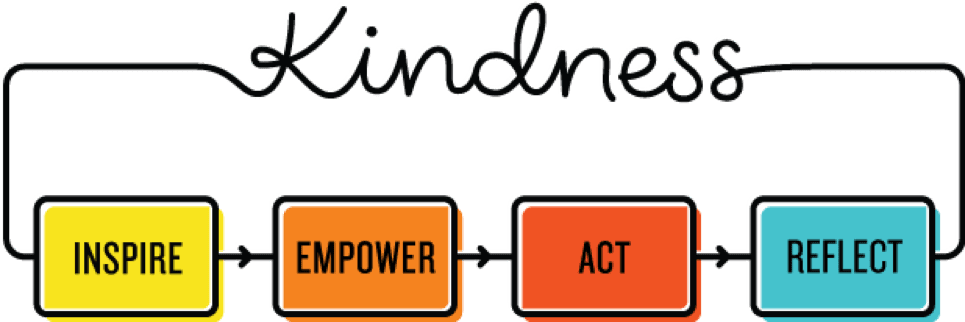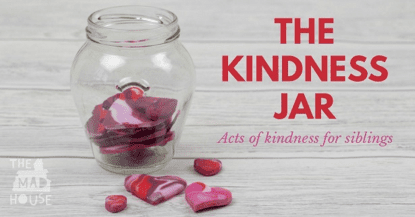By Ashley Diehl Ph.D, Licensed Psychologist

I was working with a family the other day on establishing therapeutic goals for their son. When asking the mother what she would like for her son’s future, she responded, “I just want him to be kind.” I hear this response or something similar with almost every family I work with
It’s becoming increasingly difficult to instill kindness and empathy in our children when our culture can be “all about me”, and judgment of others can be blasted on social media without seeing the consequences of what is said. So, how can you instill kindness in your child?
Instilling Kindness in Your Little Ones
A great resource is Michele Borba’s book Unselfie: Why Empathetic Kids Succeed in Our All-About-Me World. She describes kindness as compassion for others and notes how it can be “contagious.” That’s because kindness is strengthened through modeling and practice, just like any other skill.
Providing children and adolescents with the opportunities to practice kindness and encouragement to show compassion for others does not need to break the bank. All of the following suggestions are free and can be implemented easily into his/her and your everyday life.
Five Simple Acts
Research by Sonja Lyubomirsky has shown that performing five acts of kindness in one day instead of spreading them throughout the week can boost happiness. These acts of kindness can range from simply doing someone else’s chores to volunteering at a shelter.
Encouraging your children to perform random acts of kindness not only gives them the opportunity to practice being compassionate towards others, they can also get to experience gratitude from others and appreciation for their kindness. A great resource is the Random Acts of Kindness Project which provides premade calendars with examples for each day.
This can be something that you encourage while talking with your children before they leave for school or camp. The conversation can continue around the dinner table or in the car while you’re driving around, giving time to reflect on the acts of kindness that they performed.

For the Parents
A great tip I provide to parents is this: the car is a great place to have family conversations instead of listening to music or having your kids on their phones. This is a time when they can’t leave and can be engaged in a conversation with you! It can be fun to discuss how other peoples’ behaviors changed towards them following an act of kindness and how he/she felt when they did something nice for someone else.
This emphasizes that important gratitude piece that Lyubomirsky found to be so important at boosting children’s happiness. For small children, use phrases such as “being a helper” in talking about ways they can show kindness towards others. You can sit with your child and create your own “Act of Kindness” cards, with each highlighting a different act of kindness.
This provides concrete examples for children and gives them something tangible to pass along so they can see how their random act of kindness can grow and spread to others. Orly Wahba describes in a TED Talk how using “A-OK” cards can build powerful connections with others and how rewarding it is to feel the gratitude you get in return. Another way you can discuss acts of kindness with your child is by pointing out when you see kindness portrayed in movies and television.

Going Further
Another great way that you can point out kindness and praise your children for being compassionate is by starting a kindness jar. You can place a bead or small coin into a jar every time you see your child showing kindness toward others. This not only gives your child visible recognition, but if money is dropped into the jar, it can be donated to a cause that’s important to your family. It’s important to make service a family affair that is performed frequently, not rarely.

Modeling kindness in your everyday interactions as a family is important so that your kids have concrete examples of what kindness looks like. Don’t assume that your children automatically know how to be kind. Instead, guide them through to do it themselves.
It can be helpful to “play detective” and point out how other people may be feeling based on their body language and facial expressions. Asking your children, “How can we show that we care?”, can open up the conversation on showing kindness to others.
This allows your children to practice recognizing other people’s emotions. You can also mirror how you think they’re feeling as a way to validate their own emotions, e.g. “You seem frustrated”. These simple tasks cultivate kindness and empathy, which are important foundations toward building lasting and rewarding relationships.
Show Kindness Together!
As Dr. Borba said, “kindness can be contagious” and is something that you can build and foster within your children that can lead to so many benefits, including them being a happier child. Our team of psychologists in Tampa work with families to improve kindness and empathy to continue to build on children’s strengths so that they can overcome life’s challenges. If you’d like to schedule an appointment with a member of our team, give Rice Psychology Group a call today.


